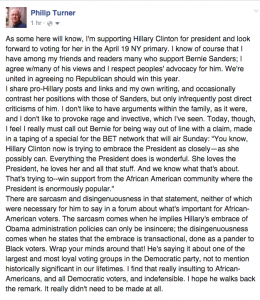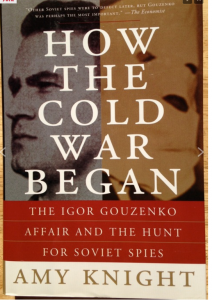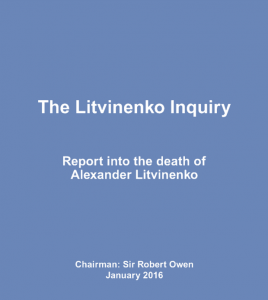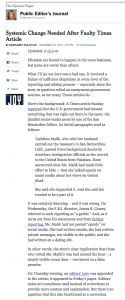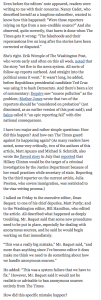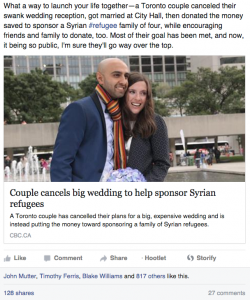Despite Donald Trump’s continuing defiance of political gravity, with poll numbers that continue making him the clear front-runner, I believe that even if he wins the Republican nomination—which does seem increasingly possible—the kind of extreme primary campaign he’s running, which seems likely to go all the way to the convention, will in the end next November 8 lead to a victory for the Democratic nominee. Winning the Republican nomination this year, after this ratcheting cascade of race-baiting, hate and belligerence, augurs a general election campaign in which Democrats will be able to once more successfully motivate and activate voter turnout among the wide and deep coalition that elected Pres Obama twice. It’s still possible, I guess, that all the norms of American politics are in the process of being reset by the mega-wattage of Trump’s celebrity, and there could be external events that influence the outcome, and I must account for the media’s infatuation to this point with Trump, but consider that this will not be a mid-term electorate, when Democrats do often fail to motivate its base. Also, despite Trump’s feints toward populism, like his disapproval of trade deals, which suggests he will try to poach on Democratic voters, on a key pocketbook issue, he opposes raising the minimum wage, and even said in a debate that he thinks wages are too high now.
To borrow a phrase from the 2012 campaign, if Mitt Romney was unable to execute an ‘etch-a-sketch’** moment, in which positions he took in the primary were not erased before the general election, as he and his campaign aides had hoped they would be—then Donald Trump, who makes Mitt Romney seem like Adlai Stevenson, sure as hell won’t be able to do this, either. No, if Trump’s at the top of the ticket, or Ted Cruz—who blogger Paul Waldman today suggests may, ironically, become the last hope of the futile Republican establishment—I believe Democrats will turn out in sufficiently huge numbers in the key states to deny Republicans the White House. It will definitely be an anxiety-producing year, but after all the noise, bluster, and severe social disruption, with media often failing to cover the stories and issues well, I believe that as the Republican candidates continue to plumb the basest parts of the American psyche, and worse ugliness, a Democrat will ultimately be elected president.
I must add two things before closing this post.
1) I think all the above means that the V-P selection by the DEM nominee will be extremely important, more so than most presidential years. Particularly if Trump is the opponent, the running mate will be the one tasked with parrying the daily insults, barbs, and baseless allegations made by him and his campaign. If Hillary is the nominee, for instance, we can anticipate the fulminations and barrage of accusations that would be uttered in stump speeches, high-profile convention moments, and in advertising. The same for Bernie Sanders, whose embrace of democratic socialism is sure to elicit emphasis on the second word, more than the first. I don’t want to begin naming possible picks for the candidates, as it’s premature, but will return to the topic later on this blog.
2) I know that you, dear reader, may think I am off-base in my analysis, or am overlooking important factors. I’ll add I know these issues have many facets. As the campaign continues, I may well alter my view of the essential dynamics prevailing in the race.
** This is what Eric Fehrnstrom, Romney campaign manager, told John Fugelsang on CNN, as reported by ABC News on March 12, 2012 [Source]: “Well, I think you hit a reset button for the fall campaign. Everything changes. It’s almost like an Etch-A-Sketch. You can kind of shake it up and restart all of over again.”
